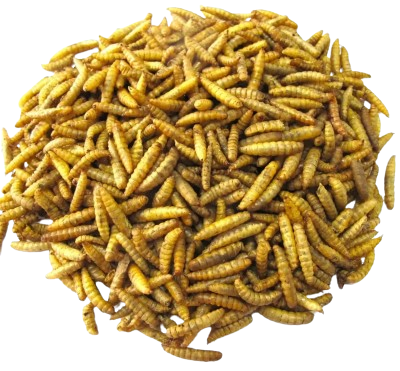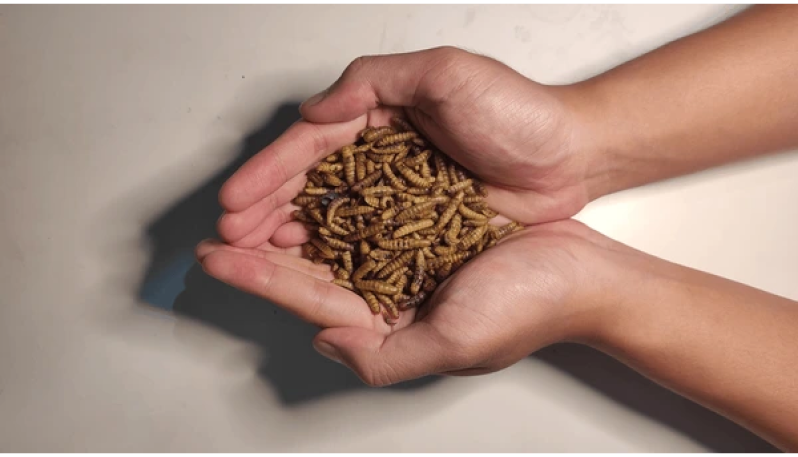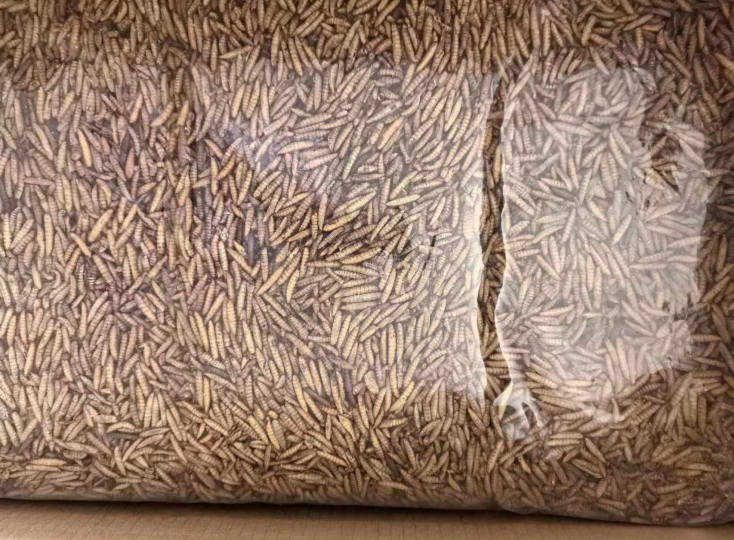Dehydrated soldier fly is a sustainable and efficient source of protein for animal feed.

Dehydrated soldier fly is a sustainable and efficient protein source, ideal for improving animal health and performance.
Dehydrated soldier fly contains a wide range of essential nutrients for animal growth and development.
Dehydrated soldier fly is easily digestible, ensuring optimal nutrient absorption and better gut health.
Dehydrated soldier fly production is a sustainable alternative to conventional protein sources, with a lower environmental impact and greater efficiency.
Our dehydrated soldier fly is a sustainable and efficient protein source for animal feed, with an exceptional nutritional profile:
560
Energy (kcal)
50g
Protein
30g
Fats

Discover the power of dehydrated soldier fly, a sustainable and efficient protein source for animal feed.

Dehydrated soldier fly is ideal for poultry, fish, reptiles, mammals, and other farm animals. Its high protein content and balanced nutritional profile make it a superior choice for improving animal health and performance.
Dehydrated soldier fly outperforms other protein sources in terms of efficiency and sustainability. Its high protein content, digestibility, and balanced nutritional profile make it a superior alternative for animal feed.
Yes, our dehydrated soldier fly is produced under strict quality and safety standards.
Yes, dehydrated soldier fly can completely replace other protein sources in animal diets, providing a balanced nutritional profile and a sustainable and efficient protein source.
The use of dehydrated soldier fly has a positive environmental impact by reducing dependency on conventional protein sources like soy and fish, which have a high environmental impact. Insect farming is a sustainable activity that requires fewer resources and generates less waste than conventional animal farming.
The production of insects like the black soldier fly is a sustainable and efficient alternative for animal feed. Learn how our innovative solution contributes to a more sustainable future:

Reduction of Emissions
Lower dependency on carbon-intensive resources.
Waste Recycling
We turn organic waste into valuable nutrients.
Resource Conservation
Less use of water and agricultural land compared to conventional protein sources.
Biodiversity
Supporting ecosystem health through sustainable practices.